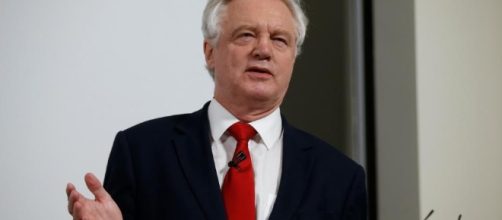"The Irish Question" has reappeared in British politics, but in a different way. For years, this term was used to describe the problems over Irish devolution within the United Kingdom. But now, this expression should be employed to refer to the Irish complications in the Brexit negotiations. Because the Republic of Ireland will be the only EU nation to border Britain once it leaves the trading bloc, the Irish border should be an issue of the utmost significance.
He has played his hand well in the Brexit negotiations
But it is also David Davis' trump card.
He has played his hand well in the Brexit negotiations so far. Ireland is as much of a priority as free trade is. Because it is unclear what Britain's border with EIRE will look like after it leaves the EU, it is crucial trade and customs are discussed before anything else. It is more important than the proposed divorce bill. This is where the Brexit Secretary has scored a notable victory. It also explains why talks between both sides are beginning to stall.
By forcing Brussels' chief negotiator, Michel Barnier, to request that the EU's 28 leaders widen the scope of negotiations to trade and customs sooner than expected via the European Council, Mr. Davis has forced the trading bloc to compromise.
The Department for Exiting the European Union has produced five papers that will outline what the UK's future relationship with Brussels will look like. Yet Mr. Barnier has insisted the divorce bill must be settled first. His stubbornness has achieved nothing. Now he has to beg the European Council to extend the remit of the Brexit discussions.
Politics is more of a priority to them than economics
If the EU's bureaucrats had any sense whatsoever, they would have realised they should have done this sooner. Brussels' history of negotiating trade deals is absolutely awful. It has taken them ten years to implement a free trade deal with Canada. They have failed to negotiate trade agreements with some of the largest economies in the world.
Politics is more of a priority to them than economics.
The biggest loser in these discussions so far is the European Commission. Their staff are so removed from reality that they felt the terms of withdrawal should come before trade talks. Or maybe they purposefully constructed the timetable like this so that the talks could potentially fail? The latter is more likely. Yet Mr. Davis has completely outfoxed them now by reminding them Ireland cannot be resolved without first agreeing new customs and trade arrangements.
Is it too optimistic to say there is now hope of reaching a satisfactory deal with the EU? Possibly. For all of Theresa May's faults, she deserves credit for providing Mr. Davis with the job of negotiating Brexit.

